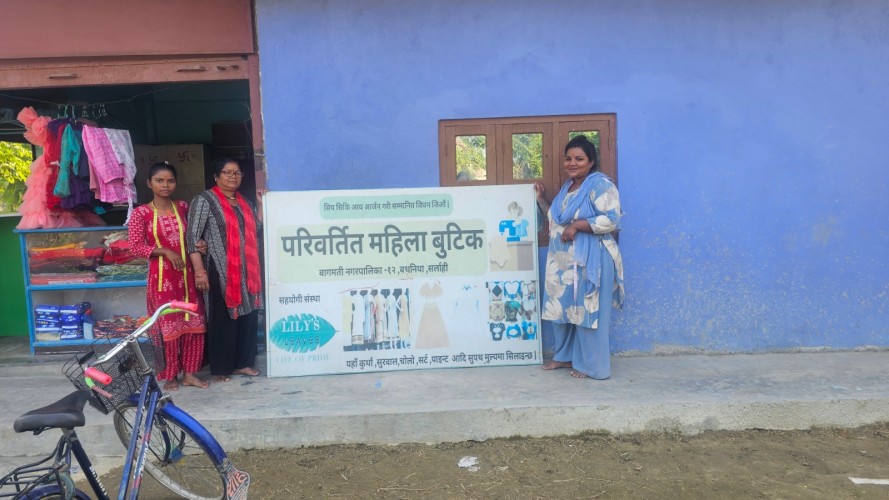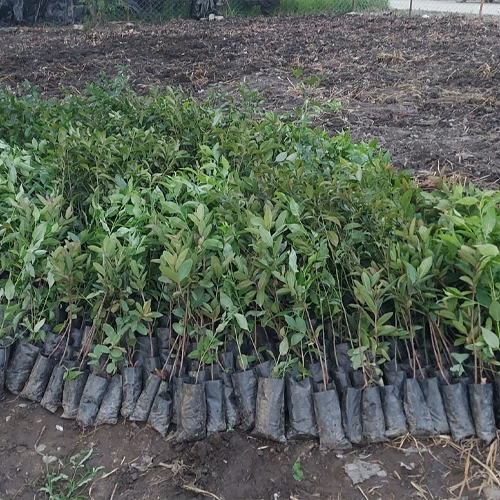




On Sunday, July 20, we hosted a special tree planting event at the sacred Swayambhunath Religious Forest, a UNESCO World Heritage site in Kathmandu, Nepal. This place is not only beautiful but also spiritually significant for Buddhists around the world, deeply connected to Lord Gautam Buddha’s teachings. It’s also a major tourist destination that draws visitors for its spiritual importance as well as its natural beauty, home to many birds, monkeys, insects, and various creatures. Nature lovers have always been amazed by its greenery and its environmental significance, biodiversity, and ecosystem.
Swayambhunath is not only a spiritual center but also a habitat for many birds, monkeys, plants, and diverse forms of life. In the past, the forest was healthy, dense, and full of natural resources: monkeys, birds, insects, and other creatures helped nourish the soil and contributed to a healthy ecosystem, maintaining biodiversity. Over time, however, Kathmandu Valley’s rising pollution, increasing crowds, rapid loss of trees, and soil erosion disrupted this ecological balance. This led to the extinction of many insect species, migration of birds and monkeys to other areas, depletion of biodiversity, and negative ecological imbalances. Monkeys in the area, in search of food and water, began entering the temple precincts and surrounding locality, feeding on unnatural diets and as a result, many developed health issues like obesity.
Keshav, the treasurer of the Swayambhu Maha Samiti, brought this urgent issue to our attention, and we recognised that we needed to take action immediately or risk losing this precious site’s vibrancy and importance.
That’s why we moved with urgency! At Lily Leaves, we approached Kathmandu Mahanagarpalika (Ward 15), Swayambhu Maha Samiti, the Forestry Department, local leaders, Gumba representatives, schools, the army, police, and over 300 community members to launch a Miyawaki-style plantation initiative aimed at restoring native forest life, bringing monkeys back to their natural habitat, and replenishing the eroded land with quality topsoil.
Using the Miyawaki method, we planted approximately 2,700 native saplings across 1,184 m² 70 different tree species. We also built a strong protective enclosure to safeguard the plants from both humans and animal interference. This marks the first phase of our Swayambhunath Religious Forest Reforestation Project - 1, which will be followed by reviving a nursery, launching SRFRP‑II, identifying new sites, and replicating similar initiatives to restore this sacred forest.
We extend heartfelt thanks to every individual and organization whose enthusiasm, dedication, and support made this possible. Because of this effort, we can look forward to hearing birds sing again, witnessing healthy monkeys feeding on fruits from the trees, and seeing insects and wildlife thriving in renewed greenery. This work is not just about planting trees it's about restoring a holy sanctuary, improving Kathmandu’s air quality, conserving biodiversity, and living in harmony with nature and all living beings.
642 views
CEO representing Lily Leaves in '9th COMMUNITY CONFERENCE" organized by The British School.
One-Day Workshop At Lily Leaves - 17th June 2023
Lily was joined by Santosh Shah, a former student of the school and winner of BBC's MasterChef.
This act not only empowered the individuals to start their own tailoring businesses
CEO Lily Katuwal and a group of visitors from Lily Leaves Social Enterprises distributed 135 school bags and uniforms in Bandipur, Siraha, demonstrating a commitment to social responsibility and fostering positive change in education for students facing financial challenges.
Volunteer from rato Bangala school Environment club
Explore how Lily’s Leaves empowers women through sustainable fashion, blending ethical craftsmanship with eco-friendly designs for a better future.
Rebuilding Nature in Swayambhu!
Equipped with new skills and gifted sewing machines, they're ready to launch their own businesses or join local enterprises.
Monkeys of Swayambhunath: Addressing Health Challenges with Care and Awareness
30 Grade 9 students from Rato Bangala School keeping Swoyambhu Clean & Green.
Lily Leaves handed out durable bags to Class 1-3 students at Saraswoti and Seti Devi Schools
We recently had the chance to speak at Kathmandu Forestry College (KAFCOL) on the topic “Greening Kathmandu: Urban Forestry through the Miyawaki Method.”
Bringing Life Back to Swayambhunath Religious Forest, a UNESCO World Heritage Site
Empowering Women & Ecosystems: Dhanushadham Wildlife Corridor Project Advances Community-Led Conservation
Recent protests across Nepal, especially the Gen G demonstrations, have seen streets filled with thick, black smoke from burning rubber tyres and plastics.
Grain feeders and water tubs installed in urban forests help retain birds and support ecosystem restoration.
We are overjoyed to share a milestone for our planet and our heritage: the Swoyambhu Religious Forest Reforestation Project - II is now complete!
Together, we can celebrate with joy and responsibility, embracing eco-friendly ways that honor both tradition and Earth.
Seeing their lives transform fills our hearts with pride and joy.